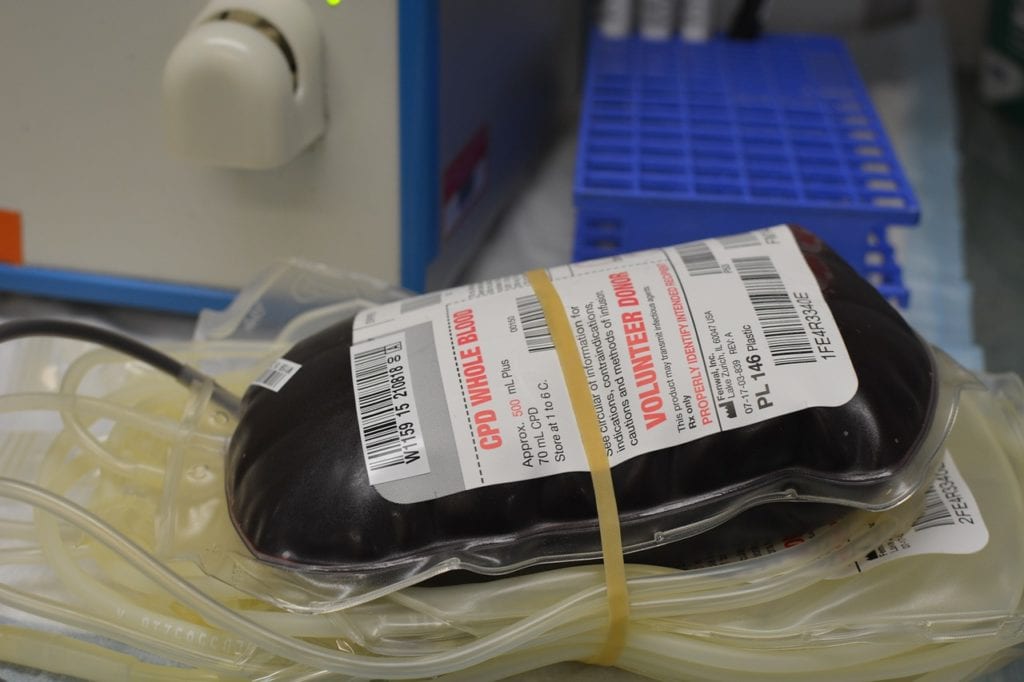By Natalie Homan from In The Cloud Copy
The United States goes through blood shortages from time to time when donation numbers drop, usually because of summer travel. In March of this year, the COVID-19 pandemic and its associated restrictions created a severe shortage at hospitals all around the country. The Red Cross always tries to maintain at least a 5 day’s supply of blood to send out to hospitals, but during the crisis, some hospitals have only had enough for the next day. COVID-19 patients don’t typically need blood transfusions, but accident and burn victims, cancer patients, and those undergoing surgery rely on blood from others to stay alive. These patients haven’t stopped needing blood just because there’s a worldwide pandemic underway.
The Red Cross and other blood donation centers depend on volunteer donations for the majority of their blood supply, but the closing of schools and workplaces combined with stay-at-home orders has reduced the number of opportunities people have to donate. Volunteers have come forward in large numbers to make up for the shortage, but until schools and businesses are back up and running at full capacity, the amount of available blood available continues to hover on the edge of another severe shortage. If you haven’t donated recently, consider finding an opportunity nearby.
What Are the Risks?
Some may worry that they risk getting COVID-19 if they leave home to donate blood. Certain illnesses, like malaria, HIV, and hepatitis B and C, can be passed through infected blood. Fortunately for everyone though, there is no known risk of the novel coronavirus (or any other respiratory virus, for that matter) being transmitted through blood. So, while you should not donate if you suspect you have COVID-19, even if you did so unknowingly, you probably could not pass it to another person through your blood. If you do suspect you have the virus, please do not donate to protect the healthcare workers and other volunteers at the donation center.
There is always a greater risk of infection in public places, but with proper precautions, the risk is low.
What Precautions Are in Place?
The Red Cross is taking every possible precaution to reduce the risk of transmitting COVID-19 or any other illness. You can probably expect these same types of precautions at any blood donation center, but be sure to call and ask ahead of time if you are concerned. If you go to a Red Cross site, you will be screened before you are allowed in. During this process, you’ll have your temperature taken and you’ll be asked questions related to your health and symptoms in the last few days.
Once you’re approved, you’ll find hand sanitizer all around the area. You and other volunteers will be asked to stay six feet away from each other at all times. Staff will be wearing face masks, and you may be provided a face mask as well (but bring one yourself just in case). Your phlebotomist will wear gloves and use a new, sterile needle. All beds and surfaces will be disinfected frequently. If you sign up ahead of time with the Red Cross, you can also sign up for a RapidPass, which will allow you to fill out most of the paperwork beforehand so you don’t have to touch as many keyboards and pens at the site.
Who Is Not Eligible to Donate?
Blood donation centers have always screened for certain situations and conditions to make sure the blood that they receive is as risk-free as possible for the people who will receive it. If you meet these criteria, you should not donate if:
- You’ve traveled to a country with high COVID-19 rates in the last 28 days or to a country with high malaria risk in the last three years.
- You take certain drugs that affect bleeding (like warfarin, Plavix, and Effien).
- You are anemic.
- You weigh less than 110 pounds.
- You are pregnant.
- You’ve donated already within the last 56 days.
Every Pint Counts
Hospital patients around the country are dependent on volunteer blood donations to stay alive. You may feel stuck and helpless spending so much time at home during the pandemic, but by donating blood, you can still make a huge difference to the person whose life you may save.
Check out the original story here.







